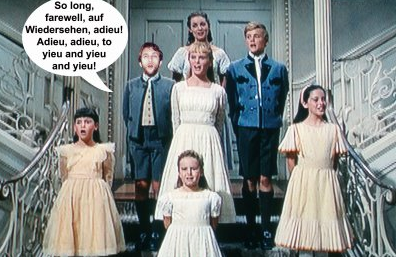Zaac
Well-Known Member
As Evangelicals Lose Faith In Cruz, His Campaign Could Be Beyond Resurrection
The crux of Ted Cruz's campaign has long been mobilizing the Christian right to his side, working to galvanize enough evangelical voters to topple Donald Trump.
The Texas senator even launched his campaign at Liberty University, which claims to be the world's largest Christian college, declaring that "God isn't done with America yet."
Cruz talks with the cadence of a megachurch pastor, and exhortations of his faith are a mainstay at every campaign rally. His strategy in targeting the most conservative religious voters worked in Iowa, but the wheels came off in South Carolina and Nevada.
Now, if he can't fully convert religious voters in many critical Southern states set to vote on Super Tuesday, his campaign could be beyond resurrection.
"I think for him to continue to lose evangelical votes to Donald Trump is a fatal blow to the rationale for his campaign," said Bruce Haynes, a GOP strategist and president of the bipartisan consulting firm Purple Strategies. "He speaks openly of the relevance of his candidacy in churches and has openly identified that a key part of their winning strategy is evangelical voters. That's his base, but he's not carrying that base."
...
Cultural Vs. Committed Evangelicals
Even if Cruz does lose born-again voters on Super Tuesday, that doesn't mean Trump has somehow converted even the most faithful to his side. Top leaders in evangelical churches have denounced his rhetoric banning Muslims from coming into the U.S. and his refusal to say he has ever asked God for forgiveness. Still, he has received the support of Liberty University President Jerry Falwell Jr., and Robert Jeffress, pastor at First Baptist Dallas, has introduced Trump at many rallies and spoken very highly of him, though he hasn't officially endorsed.
It's important to remember that the seeming wide swath of evangelical voters who will go to the polls is not homogeneous, either in political or in religious beliefs. And defining what exactly constitutes an evangelical voter can be misleading in polling. A Vox study this month noted that "regular, weekly church attendance — as measured by a standard Pew Research question included in my survey — predicted a statistically significant and substantive opposition to Trump."
That's an important distinction, especially in the South, where church and religious activities are ingrained in the culture, but degrees of devotion vary.
"In the South, there aren't that many people willing to answer the phone and tell a live human being they're not born-again. After all someone in the room might be listening," said Haynes.
"The culture of the South is replete with people who've answered an altar call and qualify as born-again, but 20 years later it would be difficult for them to demonstrate how they're living an evangelical, Christ-centered life," he continued. "They're Christian by definition, but it's not the central driving force of their life."
It's those, maybe more tepid believers whom Trump has tailored an appeal to, with his bombast against illegal immigrants, America's weakness abroad and promise to restore the country's greatness. And in the South, it's that type of voter who will dominate the contests on Tuesday, likely denying Cruz his last prayer of a campaign resurgence.
http://www.npr.org/2016/02/29/46855...ruz-his-campaign-could-be-beyond-resurrection

Bye bye Ted Cruz.
